离婚案件中夫妻共同债务债权人的地位与权利解析
sun(作) 离婚新闻在离婚案件中,涉及到夫妻双方共同的债务时,债权人往往处于较为敏感的地位。他们不仅关注自己的权益是否得到保护,还关心债务人(即原夫妻一方或双方)的偿债能力是否会因离婚而受到影响。本文将探讨离婚案件中夫妻共同债务债权人的地位和权利,并分析相关法律规定以及实际案例中的处理方式。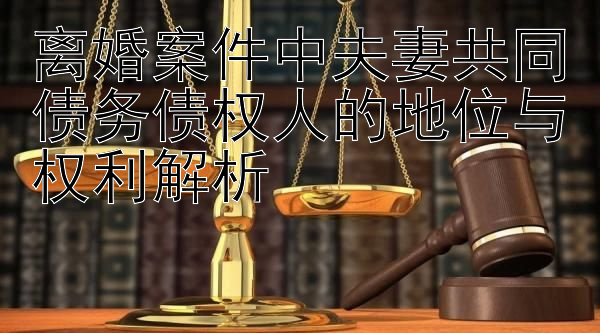
一、法律基础——《民法典》及其司法解释的规定 根据我国现行有效的《中华人民共和国民法典》及最高人民法院的相关司法解释,夫妻双方在婚姻关系存续期间所负的债务原则上应当认定为夫妻共同债务,除非有证据证明该债务确为个人债务。对于夫妻共同债务,债权人有权要求原夫妻任何一方或者双方偿还债务。
二、 In divorce cases involving joint debts, creditors often find themselves in a sensitive position. They are concerned not only about the protection of their own interests but also about whether the debtors' (i.e., either or both former spouses) ability to repay will be affected by the divorce. This article explores the status and rights of joint-debt creditors in divorce proceedings, analyzing relevant legal provisions and how they are applied in actual cases.
I. Legal Basis - Provisions from Civil Code and Judicial Interpretations According to China's current effective "Civil Code" and related judicial interpretations issued by the Supreme People's Court, debts incurred during the marriage period are generally considered as joint liabilities unless there is evidence proving that it is indeed an individual liability. For such joint debts, creditors have the right to claim payment from any one or both ex-spouses.
II. Position of Creditors in Divorce Cases Creditors hold significant positions in divorce cases due to their interest in ensuring that the couple's assets are fairly divided without affecting the debt repayment process. However, they may face challenges when the divorcing parties dispute the nature of certain debts or try to evade responsibility through strategic asset allocation. In these situations, courts typically prioritize protecting the legitimate rights and interests of creditors while balancing fairness between the divorcing couple.
III. Rights of Joint Debt Creditors Joint debt creditors have several rights under Chinese law: 1. Right to Claim Repayment: Creditors can demand repayment from either spouse individually or jointly. If one party refuses to pay, the creditor can take legal action against them. 2. Right to Participate in Divorce Proceedings: Creditors may petition the court for permission to participate in divorce proceedings if they believe their interests could be harmed by the division of marital property. 3. Right to Object to Asset Distribution Plans: If creditors feel that the proposed distribution plan would undermine their chances of being repaid, they can file objections with the court. The court then considers these concerns before making its final decision on asset division. 4. Right to Seek Additional Security: Under special circumstances where the debtor might default on payments after the divorce, creditors might request additional security measures like personal guarantees from other family members or collateralized assets.
IV. Case Studies To illustrate how these principles play out in practice, consider the following scenarios: Case 1: Li Ming and Wang Fang decide to divorce after accumulating substantial credit card debt over the years. Their creditor, Bank X, intervenes in the divorce proceedings to ensure that the debt is recognized as a joint obligation and that sufficient assets are set aside to cover the outstanding balance. The court agrees with Bank X's argument and orders the sale of a shared property to settle the debt.
Case 2: Zhang Wei and Chen Yi divorce, but Chen Yi claims that some of the loans taken out during the marriage were used solely for her business venture and should thus be treated as her sole responsibility. However, upon investigation, the court determines that part of the loan was used to finance household expenses and therefore constitutes a joint debt. As a result, Zhang Wei remains liable along with his ex-wife despite initially contesting this point.
Conclusion The position and rights of joint debt creditors in divorce cases are critical factors influencing the outcome of both financial settlements and post-divorce debt management. It is essential for all parties involved—including the divorcing couple, their attorneys, and the court system—to recognize and respect the importance of these stakeholders' interests throughout the litigation process. By doing so, justice can be served effectively, ensuring fair treatment for everyone concerned.
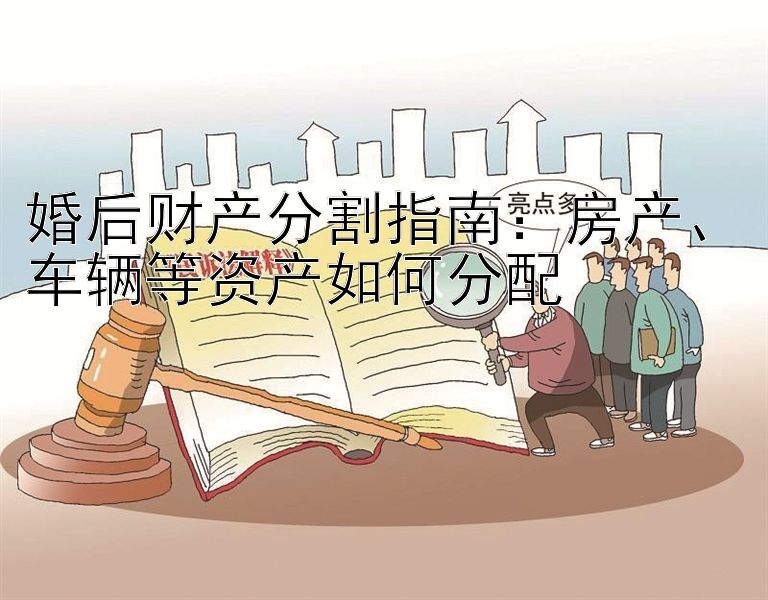
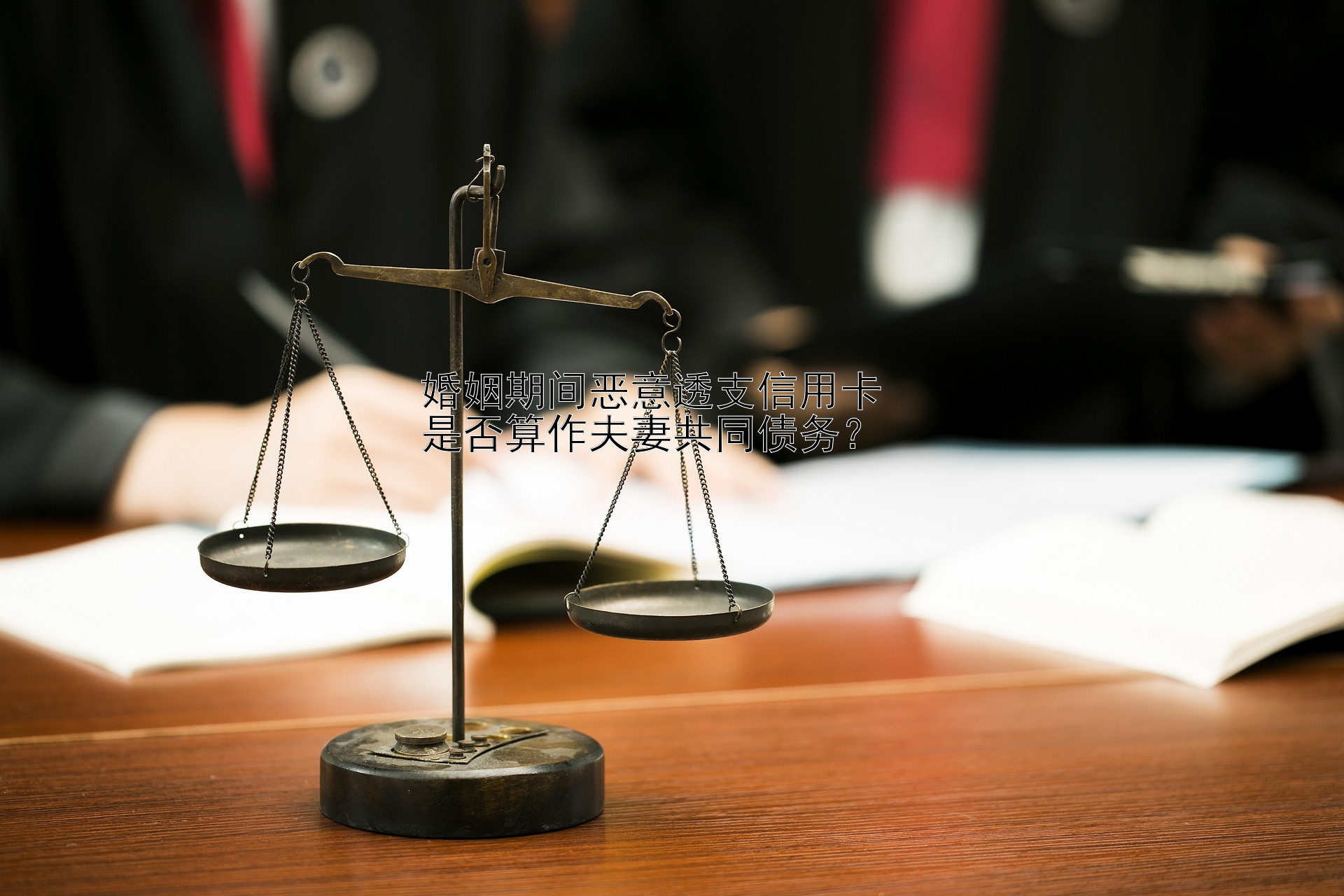
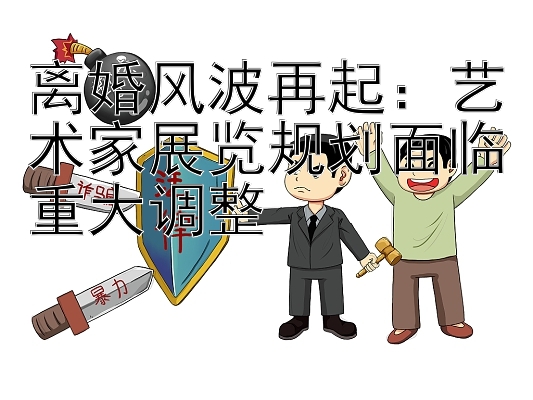
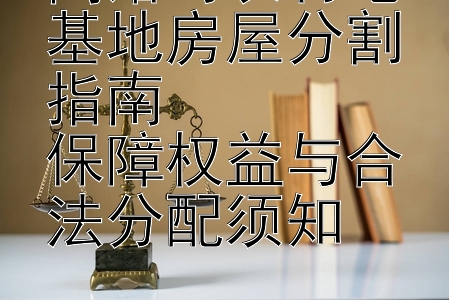
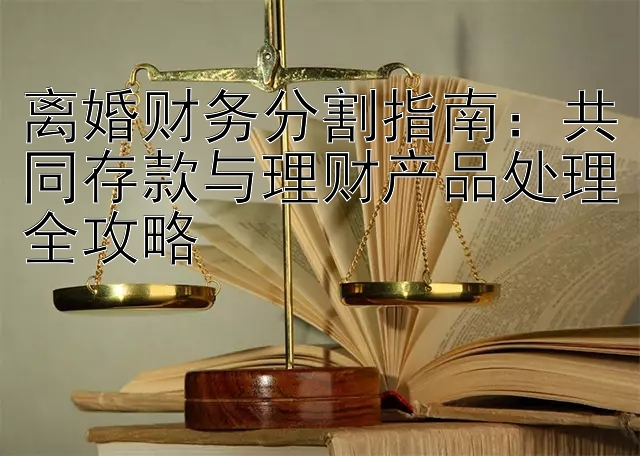
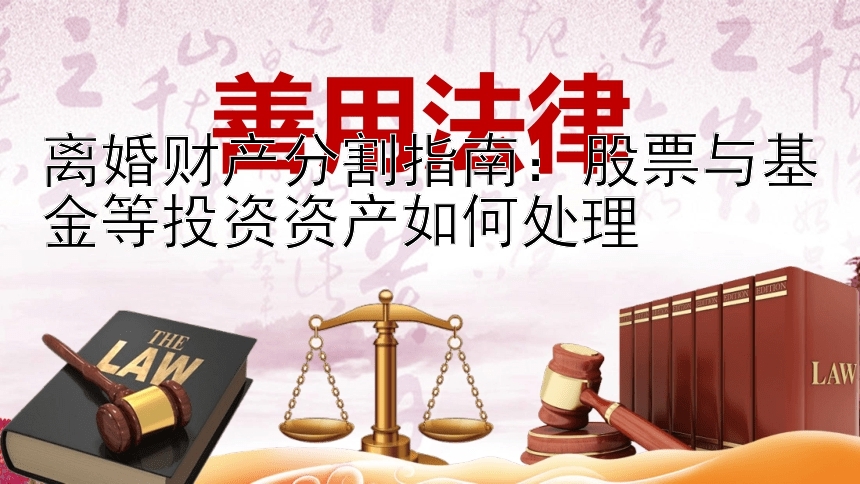
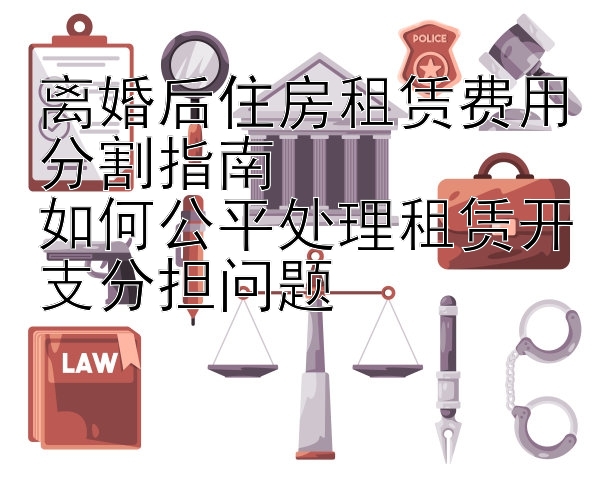
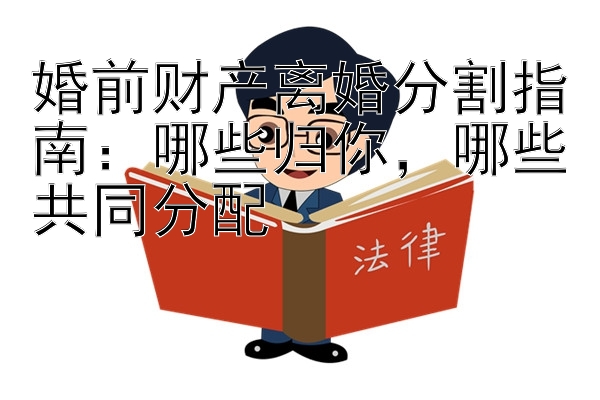
 婚前财富分割:离婚协议中的关键考量
婚前财富分割:离婚协议中的关键考量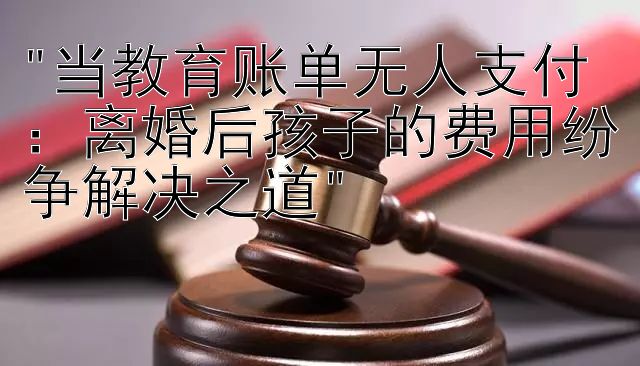 当教育账单无人支付:离婚后孩子的费用纷争解决之道
当教育账单无人支付:离婚后孩子的费用纷争解决之道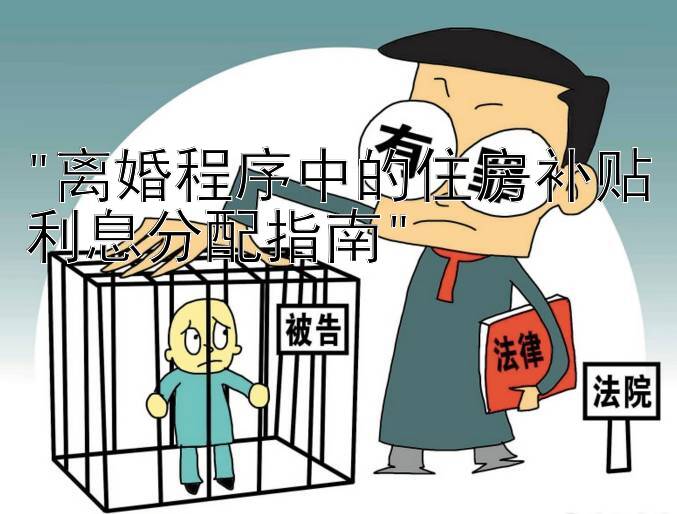 离婚程序中的住房补贴利息分配指南
离婚程序中的住房补贴利息分配指南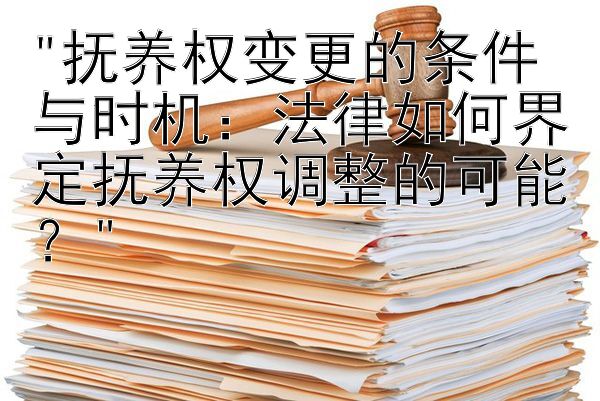 抚养权变更的条件与时机:法律如何界定抚养权调整的可能?
抚养权变更的条件与时机:法律如何界定抚养权调整的可能?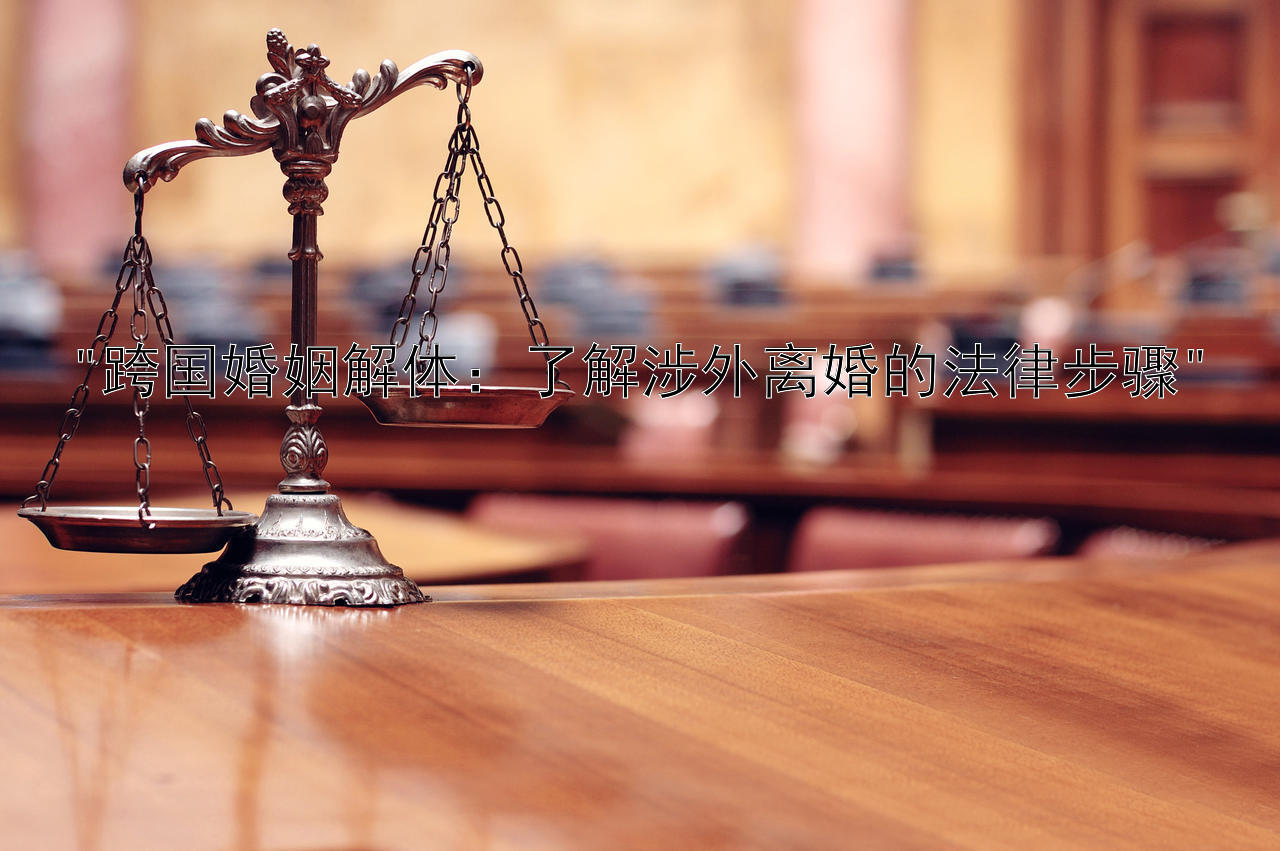 跨国婚姻解体:了解涉外离婚的法律步骤
跨国婚姻解体:了解涉外离婚的法律步骤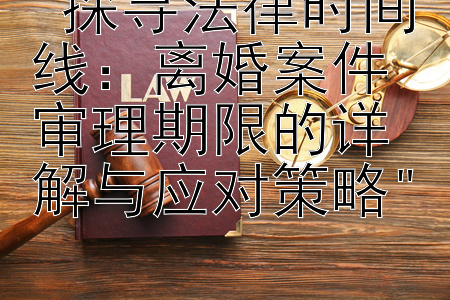 探寻法律时间线:离婚案件审理期限的详解与应对策略
探寻法律时间线:离婚案件审理期限的详解与应对策略